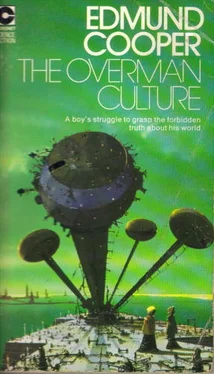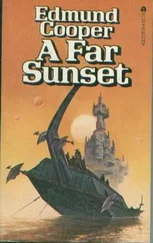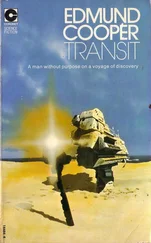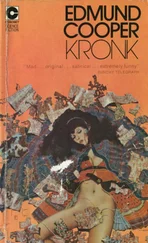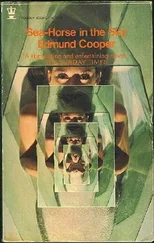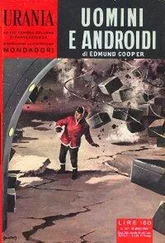Edmund Cooper - The Overman Culture
Здесь есть возможность читать онлайн «Edmund Cooper - The Overman Culture» весь текст электронной книги совершенно бесплатно (целиком полную версию без сокращений). В некоторых случаях можно слушать аудио, скачать через торрент в формате fb2 и присутствует краткое содержание. Город: London, Год выпуска: 1977, ISBN: 1977, Издательство: Coronet Books, Жанр: Фантастика и фэнтези, на английском языке. Описание произведения, (предисловие) а так же отзывы посетителей доступны на портале библиотеки ЛибКат.
- Название:The Overman Culture
- Автор:
- Издательство:Coronet Books
- Жанр:
- Год:1977
- Город:London
- ISBN:978-034017860
- Рейтинг книги:5 / 5. Голосов: 1
-
Избранное:Добавить в избранное
- Отзывы:
-
Ваша оценка:
- 100
- 1
- 2
- 3
- 4
- 5
The Overman Culture: краткое содержание, описание и аннотация
Предлагаем к чтению аннотацию, описание, краткое содержание или предисловие (зависит от того, что написал сам автор книги «The Overman Culture»). Если вы не нашли необходимую информацию о книге — напишите в комментариях, мы постараемся отыскать её.
The Overman Culture — читать онлайн бесплатно полную книгу (весь текст) целиком
Ниже представлен текст книги, разбитый по страницам. Система сохранения места последней прочитанной страницы, позволяет с удобством читать онлайн бесплатно книгу «The Overman Culture», без необходимости каждый раз заново искать на чём Вы остановились. Поставьте закладку, и сможете в любой момент перейти на страницу, на которой закончили чтение.
Интервал:
Закладка:
“And now,” said Michael, “we know why you need us.”
“Yes, Michael Faraday. We need something only man can provide. We need purpose.”
“Tell us why you created such an illogical and unreal environment in which to bring us to maturity. Tell us why you confused us, evaded our questions, frustrated our attempts to learn. Tell us why you tried to deny us the truth.”
“We did not deny you the truth,” retorted the voice. “It was available if you were prepared to look for it. But I will begin at the beginning. During the past ten thousand years, the Overman vault was not the only cryogenic suspension chamber to be discovered. It was, however, the only chamber that continued to function efficiently and also contained the right kind of biological material—sperm and ova—in viable condition. There were two main possibilities. The first was to construct an ideal environment, including complete orientation, comprehensive education, and full access to known history and all other relevant data. The second possibility was to create a stress environment, invoking insecurity, ignorance, logical absurdity. The second environment was chosen. It was designed to test personality, intelligence, initiative, determination. Such data was required if machines were ever again to associate themselves with human ventures, human aims. But the test was more comprehensive than the obtaining of data upon a group of individuals. It was, in a way, a testing of the nature of man.”
“Some of us were tested to destruction,” said Michael grimly.
“Regrettable, but necessary. Such a test could not preclude extreme psychological stress…. The experiment had to justify the effort…. It took much design work, the reconstruction of a great deal of obsolete machinery, and nearly fifty years to fabricate the stress environment. A London matrix was chosen simply because Julius Overman originated in London. Also, the sperm and ova he had preserved were from British donors of Caucasian stock.”
Michael gave a bitter laugh. “I appreciate now the significance of the Overman legend as it was given to us in play school long ago. It defined the problem neatly. Shall men control machines, or shall machines control men?”
“The mythological aspect was loosely derived from ancient Christian beliefs,” said the voice. “But if the Overman culture flourishes, the question as stated may once more be germane.”
“What is important to us now,” said Michael, “is that we should have time to talk among ourselves, time to adjust, time to see something of the land you call Tasmania.”
“You shall have as much time as you wish. Ground and air transport will be available when required.”
“Thank you,” said Michael. “We, too, have learned something of value from your experiment.”
“What is that?”
“Without mankind,” said Michael, “machines are nothing.”
35
Fleecy clouds were scudding across the sky. The breeze was strong, but the air was warm. Emily and Michael stood on the hilltop, hand in hand, gazing about them—drunk on the prospect of far horizons. On one side lay the sea, blue and limitless, its white breakers rolling up a beach where indolent iguanas basked and disported themselves. On the other side lay rolling miles of green enchantment—wooded countryside abounding with streams, rivers, lakes.
Down in the landward valley, the helicopter waited, while scattered groups of the Overman culture finished the remains of their picnic lunch and reveled in a freedom they had never known before. The synthetic city of London, prison and incubator, lay beyond the far hillside, out of sight.
Presently, the journey of exploration would begin. Presently, the helicopter would lift off and take forty-three members of the new human race to survey their promised lane. But there was no hurry. There was all the time in the world. The resurrection of mankind had taken ten thousand years. It would take centuries, probably, before even Tasmania was reasonably populated once more. Against such a time scale, what did hours, days, months matter?
Emily looked around her and sighed with happiness “I am glad they called me Emily Bronte,” she said. “I am glad they called you Michael Faraday. I am going to learn about that other Emily and that other Michael. I want to know what they were like.”
“They were giants,” said Michael. “And we are pygmies…. I suppose the drybones—I mean, Complex Nine—called us after the illustrious dead so that when we discovered the truth we would be compelled to measure ourselves against their stature. Or perhaps it was just the private joke of a thinking machine.”
Emily gazed at him lovingly. “There are giants among us already, but, naturally, you wouldn’t notice.”
Michael watched a figure climbing up the hillside toward them. “Ernest, if I am not mistaken,” he said. “Ernest, who is so hungry for knowledge, so eager to follow in the steps of his namesake that he will drive himself night and day to recover some of the science we have lost.”
Emily laughed. “Look at his shadow, Michael. He has a very long shadow for a pygmy.”
“He will have a much longer shadow in the years to come,” said Michael. “Ernest is the one who will teach us to understand the thinking machines. Someday, he will give us the right answer to the question.”
“You have great faith in him.”
“I have faith in us—in all of us. I need to have. There is so much to do.”
“What do you want to do?”
“Mankind has a second chance. We are the waymakers, the advance guard of a new humanity. The way we live, the actions we take, will decide whether intercontinental missiles or spaceships lift off Earth a thousand years from now. We have to create a world in which there are no nations but only one people.” He laughed. “A world in which even thinking machines are not subject to a conflict of loyalties.”
“I want to have your children,” said Emily, hardly understanding what she meant. “I want to have many of your children.”
Ernest, puffing and blowing, had almost reached the top of the hill. “I have been talking to Mr. Shakespeare,” he called. “He gave me some marvelous news.”
“Complex Nine,” corrected Michael. “You have been talking to Complex Nine. They are all one. Don’t ever forget that.”
Ernest arrived at the top. “They still have nearly three hundred ova. Mr.—Complex Nine wants to know if we would like to have them fertilized and cultured. It would mean that—”
“The answer is no,” said Michael. “Ernest, do you trust me?”
“Yes, Michael. I have always trusted you.”
“Then forgive me for being dictatorial. But the answer is no. Not yet…. Complex Nine would like to have us very dependent on machines. I would like to have us independent. If that thinking machine wants to do anything useful for us, it can build us a residential school, a college, a university, containing all the books that have survived—and far away from London. It can help us to cultivate the earth and grow our own food. It can help us to build farms, houses, laboratories. But it must not create another culture—another generation—until we are ready to be completely independent.”
“I follow your reasoning. We have to educate ourselves before—”
“Before we can educate them,” said Michael. “I’m damned if I’ll trust another generation to a thinking machine.”
“But suppose Comdex Nine doesn’t agree?”
“It will.” Michael smiled. “For ten thousand years, the machines marked time.” He waved his arm. “They just did not know what to do with all this—this richness…. Only man can supply purpose. The machines know that, and let us never forget it…. When we have educated ourselves, we will be ready for another generation. And we will educate them…. Complex Nine will agree—because without us it lacks purpose.”
Читать дальшеИнтервал:
Закладка:
Похожие книги на «The Overman Culture»
Представляем Вашему вниманию похожие книги на «The Overman Culture» списком для выбора. Мы отобрали схожую по названию и смыслу литературу в надежде предоставить читателям больше вариантов отыскать новые, интересные, ещё непрочитанные произведения.
Обсуждение, отзывы о книге «The Overman Culture» и просто собственные мнения читателей. Оставьте ваши комментарии, напишите, что Вы думаете о произведении, его смысле или главных героях. Укажите что конкретно понравилось, а что нет, и почему Вы так считаете.
